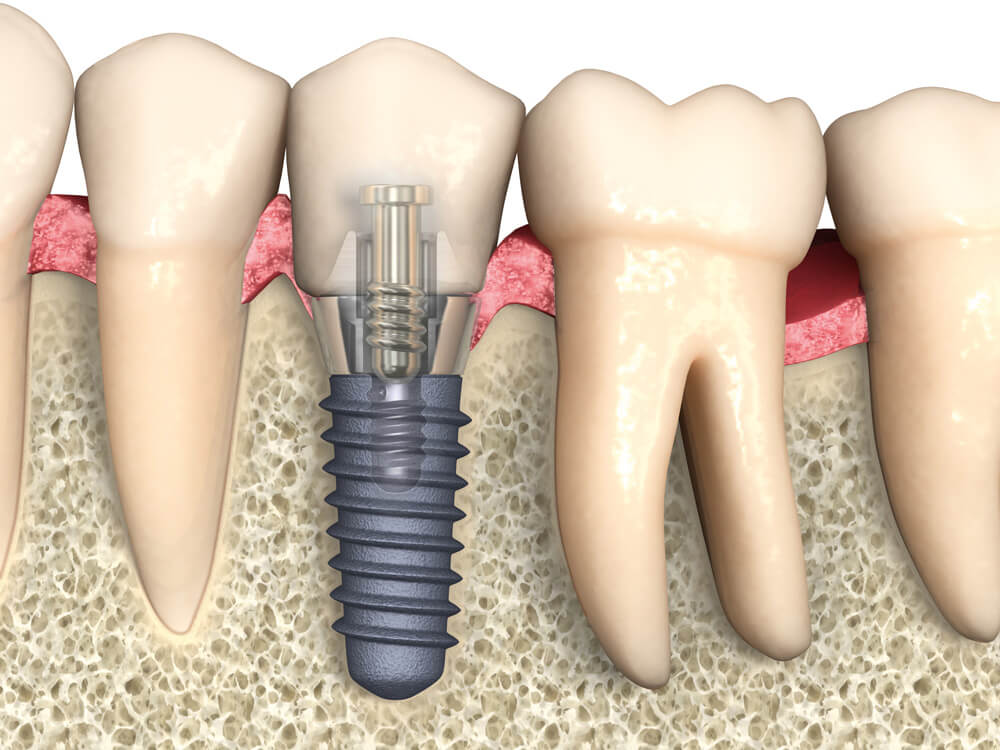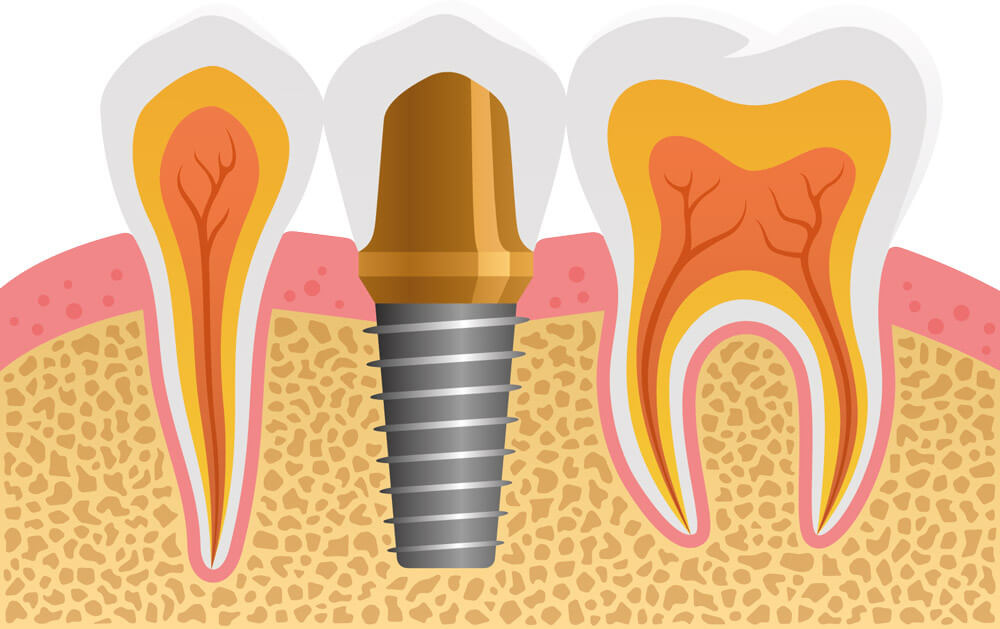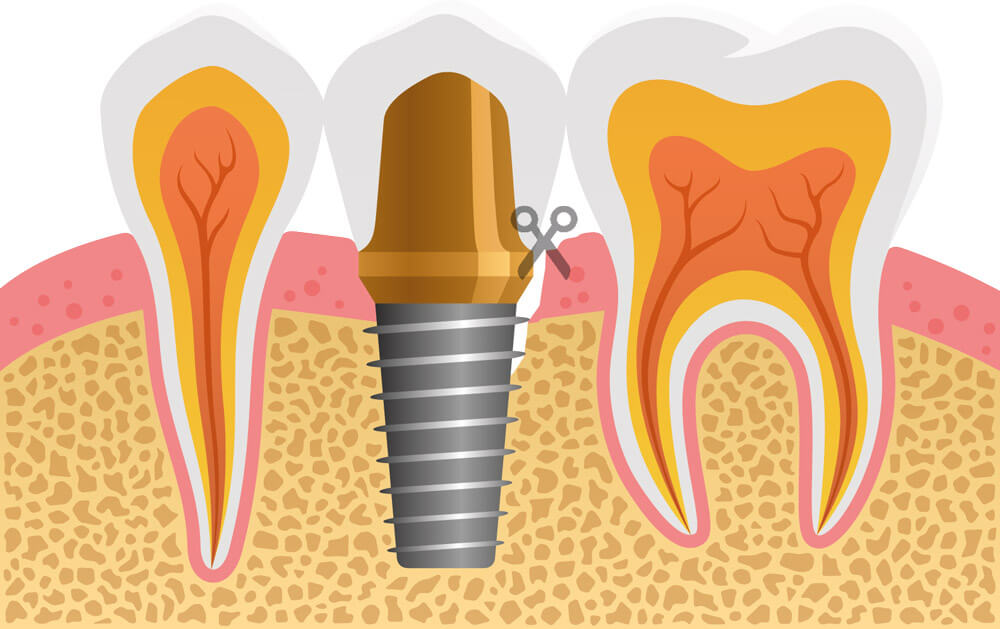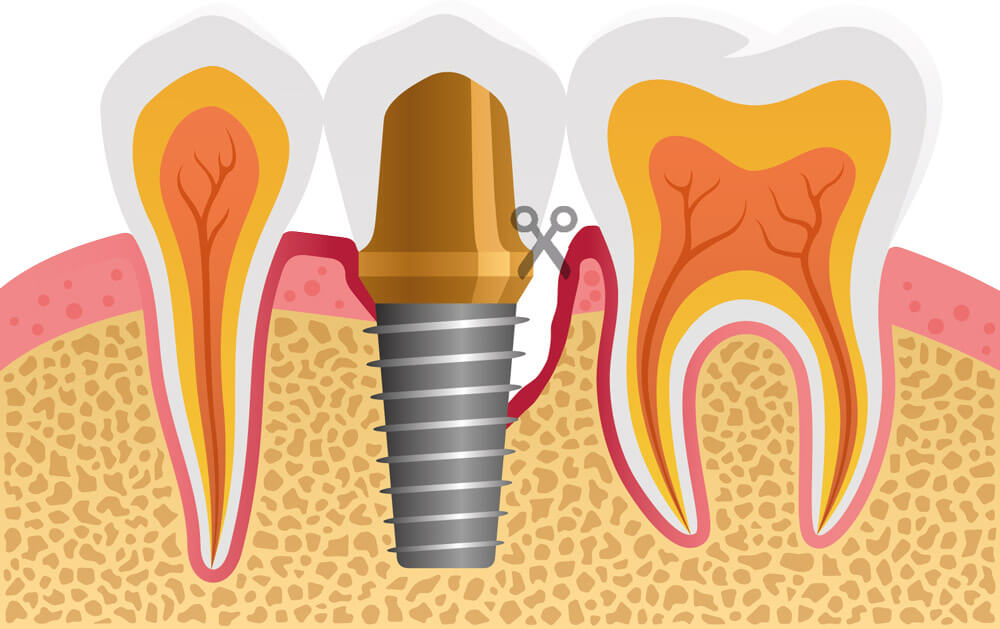ImplantSafe centers and coaches ensure more implant safety
100 ImplantSafe Centers and approximately 500 ImplantSafe Coaches are now launching in Germany, Austria and Switzerland. The ImplantSafe Centers have set out to set new diagnostic, preventive and conceptual standards to increase the sustainability, safety and longevity of dental implants.
Why is implant safety and sustainability so important right now?
The concern is the continuously increasing prevalence of implant infections.
A recent overview study shows that about 25% of all implants show a profound periimplantitis already after 9 years and about 70% of all implant patients suffer mostly unnoticed from inflammation and incipient bone loss at their implants. (1) Der Spiegel, Verbraucherzentrale and the German Federal Ministry of Justice have already taken a stand and are specifically pointing out to patients the significant risk of periimplantitis and the lack of sustainability in patient care. (2)
Extract of the Implant Safe Center
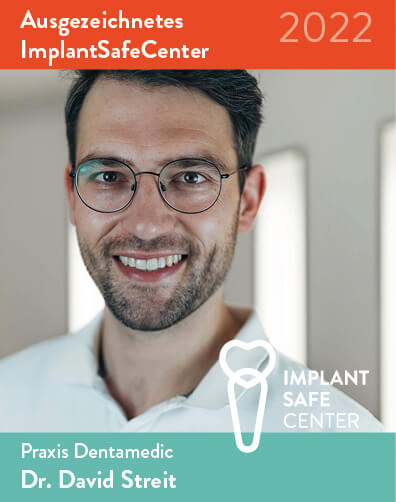
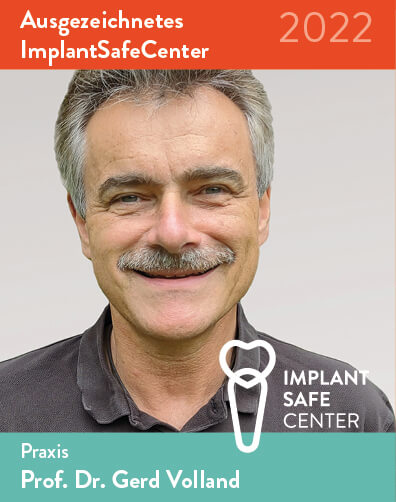
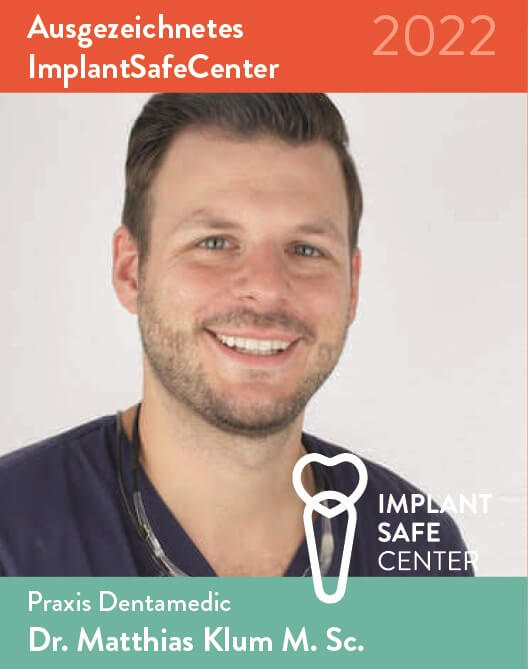
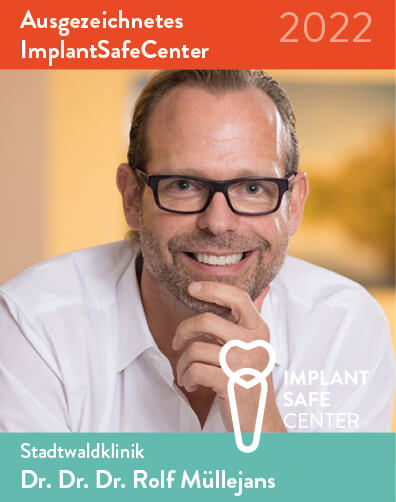
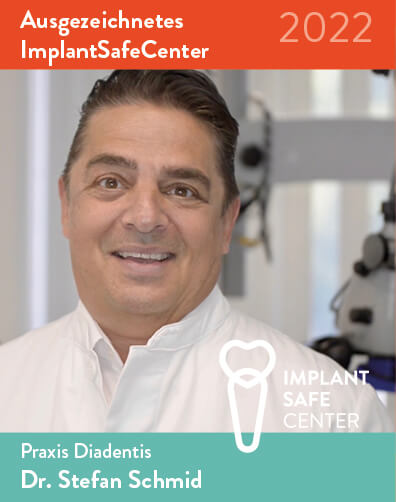
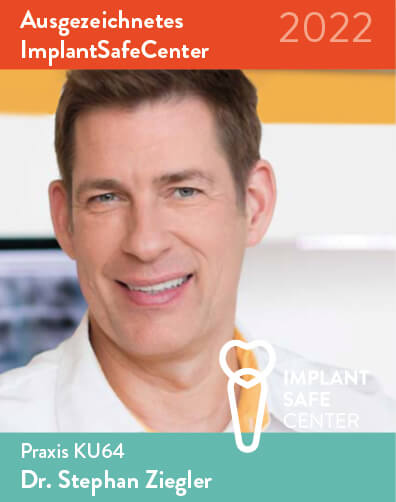
More sustainability and safety - The evidence-based concept of the ImplantSafe Center(ISC)
Thanks to predictive, chairside early detection diagnostics, impending peri-implantitis can now be detected and prevented in good time. Researchers from the Universities of Marburg, Rome and Helsinki have tested and confirmed the scientific evidence for the performance of the concept of predictive diagnostics to increase sustainable implant health in long-term studies. The findings of these studies are now being translated into practice so that every implant patient can benefit and inflammation-free implant health becomes a lived reality. (3) (4) (5)
Advantage through predictivity
The "ImplantSafe Test" detects the molecular onset of the disease in time, i.e. 6 to 24 months before the onset of peri-implant bone loss - with a prediction accuracy of 94%. (4) The qualified ImplantSafe Centers combine systematic early detection with targeted secondary prevention therapies and have integrated predictive screening as a standard part of their processes.
Long-term studies from the Netherlands show the success of the procedure - peri-implantitis progression could be stopped or significantly slowed down. (5)
The community of values:
The DMS Competence Partner Network
The nationwide competence partner network is actively supported by the patient education campaign www.I-love-my-Implant.com of the German Oral Health Foundation (DMS).
The DMS initiative is supported by a community of values of specialists, dental hygiene experts, associations and industry partners who want to offer their patients a concept for achieving a sustainably healthy implant restoration and promote the good image of serious implantology.
Patients entitled to receive your implant investment - cooperation required
Patients throughout Germany can find out how and where to check the safety and freedom from inflammation of their implants and how to ensure their sustainable and inflammation-free implant health.
Dentists have so far had no chance in the prevention of periimplantitis
The previous standard x-ray and probing usually diagnosed the disease post-destructively and did not achieve this precision - as a consequence, the practitioner hardly had a chance to prevent the increase of peri-implantitis, as "hindsight therapy" was the logical consequence of the prevailing diagnostic procedures. A recent study by the University of Marburg demonstrates the high savings potential for patients, the risk reduction, but also the potential of preventive therapies for practitioners. (3)
Recommendation by DZV
The German Dental Association (DZV) has verified the scientificity and usefulness of the methodology and explicitly recommends this in a press release for reimbursement by insurers. (6)
GERMAN ORAL HEALTH FOUNDATION
Apply for seal of approval
Predictive diagnostics & secondary prevention in focus
Continuing education and training for the team
Improved patient adherence
QC and legally compliant documentation of the status quo
healthy teeth and dental implants for life
Fit for the future with our quality seals

Dirk-Rolf Gieselmann
Board of Directors

Sources:
- (1) Derks, J., et al., Effectiveness of implant therapy analyzed in a swedish population:
prevalence of peri-implantitis. Journal of Dental Research, 2016. 95(1): p. 43-49. - (2) Verbraucherzentrale Nordrhein-Westfalen e.V., Marktcheck 2017 – Online-Erhebung:
Versichertenbefragung zur Risikoaufklärung bei Zahnimplantaten. 2018. Microsoft Word – Sachbericht_Implantate_final (kostenfalle-zahn.de) - (3) Frankenberger, R. et al., Health economic potential of oral aMMP-8 biomarker diagnostics
for personalized prevention of periodontal and peri-implant diseases, Journal of Pharmaceutical Health Service Research, Mai 2022, XX, 1-9
https://doi.org/10.1093/jphsr/rmac008 15.05.2022 - (4) Renzo Guarnieri, Alessio Zanza, Maurilio D’Angelo, Dario Di Nardo, University Rome /
Published 6th January 2022 Correlation between Peri-Implant Marginal Bone Loss Progression and Peri-Implant Sulcular Fluid Levels of Metalloproteinase - (5) van der Schoor, P. The Dutch PerioPrevention Concept. Oral presentation at Schloss
Bensberg Symposium Nov 3, 2018 - (6) Brandl-Riedl, A., Deutscher Zahnärzte Verband e.V., Neue Studienergebnisse: aMMP-8-Früherkennungsdiagnostik macht Zahnimplantate jetzt noch sicherer. 17.02.2022 2022-02-17_DZV_Pressemitteilung.pdf (dzv-netz.de)

